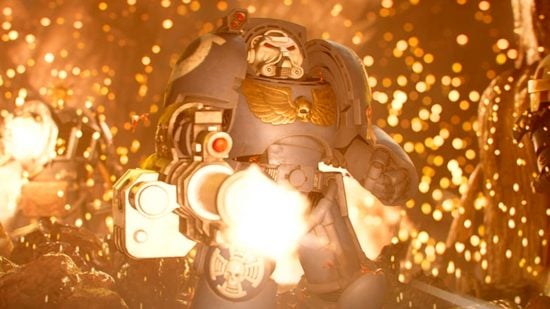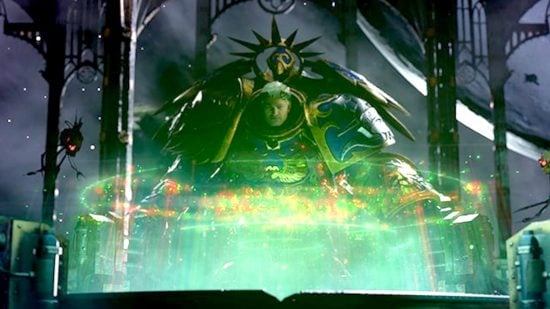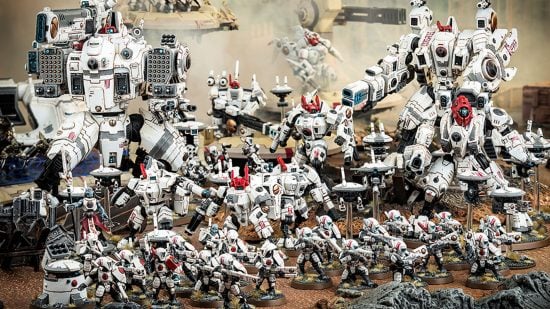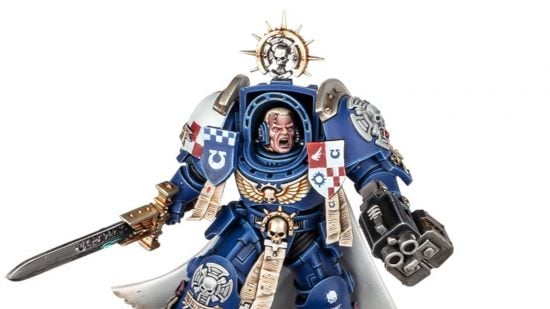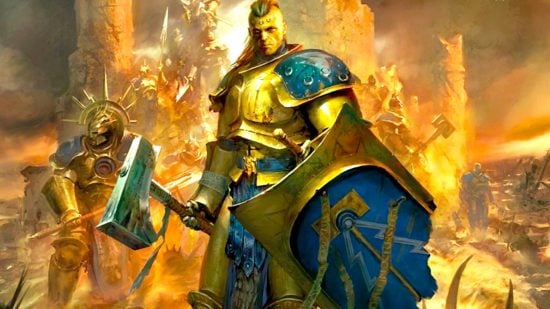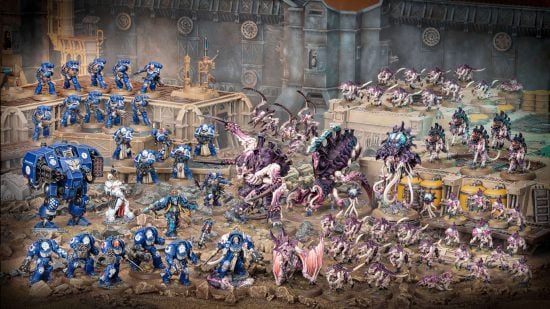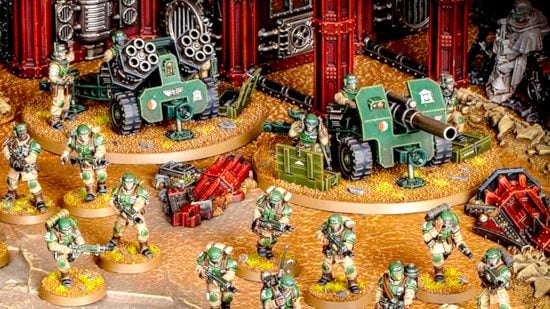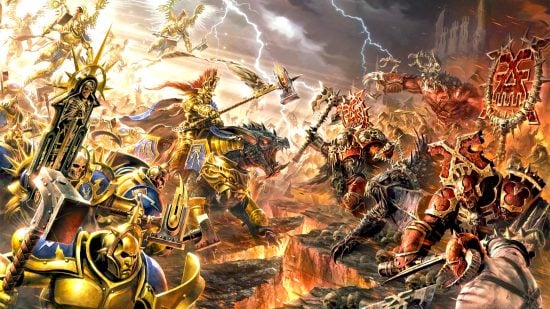As you may have heard, we in the queer community have recently become a hot topic again. While many of us love the limelight, most of the attention we get isn’t positive. Politicians, pundits, and rabble-rousers are back to calling us names, endorsing violence against us, and – in the case of transgender people – supporting legislation making it harder for them to live. It’s all reprehensible, but bigotry doesn’t stop with the media; it can even follow you to your local Warhammer 40k tournament.
Back in 2021, there was an incident at the Grand Tournament Talavera in Spain. What was supposed to be a fairly standard Warhammer 40,000 tournament garnered controversy after a player going by “The Austrian Painter” (an open reference to Adolf Hitler) entered the tourney, wearing fascist symbols.
The player was not ejected from the event, triggering an online outcry. In the days following, Games Workshop put out a statement saying people who wear fascist symbols, or are openly bigoted, aren’t welcome in their stores or tournaments.
Hey, cheers to that! It’s a welcome, warranted, and encouraging statement. But even so, anyone who’s online with even a passing interest in Warhammer 40k, Age of Sigmar, The Old World, or GW’s other games knows the community’s reputation well enough that this sort of incident wasn’t shocking – just a grim reminder of what we already knew.
It’ll take more than one inclusive mission statement to help LGBTQ+ folks like me feel safe in Warhammer spaces, because 40k’s problem with fascism runs deep.
For starters, in recent years, Warhammer 40k has been explicitly co-opted as a political tool of the so-called Alt-Right, a movement with homophobia and transphobia at the core of its ideology.
During the 2016 US presidential race, it was difficult to escape seeing images of ‘God Emperor Trump‘ online: a mashup combining the bigoted and authoritarian real-life Donald Trump with the all-powerful sci-fi tyrant that is 40k’s God Emperor of Mankind – a superhuman being that demands exacting obedience and thousands of human sacrifices daily in order to live.
This would have been a biting piece of political satire back in the late-80s Rogue Trader era when the Warhammer 40k fiction first came together – but recently (as Tim Colwill points out), the satire has become less focused, turning what was once a mockery of strongmen dictators into a tool to champion a new one.
Trump has since been kicked out of real-life political office, of course – but, as far as any of us can tell, many of those who happily glorified him using 40k imagery are still here, rolling dice.
No community is all bad, obviously; I have several friends who’re into the GW tabletop games, and they’re wonderful, supportive people – but I’ve also encountered not-so-great people in every corner of the Warhammer scene.
Whether it’s seeing them in videos showing off their armies, running into them in Warhammer 40k games online, or inescapably seeing their virulent posts on social media, I am frequently pushing through fascist content while exploring the community.
Of course, not many folks will out and out say “Hi, I’m a Neo-Nazi, and I hate all minorities” – but those of us who’re frequently in their crosshairs have learned to pick up on these people’s language. It’s a world of “dog whistle” terminology – so called because it’s innocuous to ordinary folks, but the people who are meant to hear the words always know what they really mean.
It shouldn’t be much of a surprise that bigots in general (and fascists in particular) may be drawn to this universe by the premier Warhammer 40k faction: the incredibly large, handsome, genetically pure Übermenschen that are the Space Marines (not to mention the brutally authoritarian, overtly xenophobic Imperium of Man, which rewards any flavor of dissent with extermination).
And it’s hardly a stretch of the imagination to think Age of Sigmar’s Space Marine analog, the Stormcast Eternals (immortal, divinely blessed soldiers in shining armor, dogmatically serving a germanically-named war god) might appeal for similar reasons.
All these things are fine concepts for fiction, but well-meaning GW statements about how bigots aren’t welcome in the community won’t stop them from slinking in and making the place unsafe for queer people, trans people in particular.
I know of a fair number of queer people who want to get into (or more into) GW’s miniature wargame hobby, and the obstacles listed are always thus:
- The price point (which, with 40k 10th edition, may become less of an issue),
- Having enough space in the home to store what can be a massive army
- The Warhammer community.
To speak frankly, people don’t want to pick up a hobby where they don’t know if they’ll be welcomed, or – more importantly – if they’ll be safe. In one recent case, a YouTuber that made a joke about wanting gay Space Marines said they got death threats – as did a Warhammer community member who publicly called for GW to use more inclusive gender language in Warhammer books in 2022.
The presence of bigots in the community is stopping new players like me from joining in, which is a shame for everybody. GW can put out statements about how bigots aren’t welcome, but that only halfway solves the problem.
Unlike many corporations in the US, who have backed down after facing public pressure for getting involved with Pride events, GW has a chance to step up, and make sure the queer community feels welcome.
Host Pride events! Platform more queer players, painters, and content creators! Let us know that you’re willing to step up for us at a time when a lot of others are refusing to do so.
When your corporation makes a franchise like Warhammer 40k, it’s imperative that you take the extra steps to make sure the complex, dark, and terrifying fantasy you’ve built remains purely a fantasy.
Do a better job of that, and I might feel safe to join your tables one of these days.
While we’re waiting for that, if you’re interested in the intersection between LGBTQ+ issues and tabletop gaming, we recommend you check out Gab Hernandez’s piece on queer representation in Warhammer 40k.
If you’re more inclined towards tabletop RPGs, go read Amber Willmott’s piece on why TTRPGs will always be a haven for LGBT people, or Jana Townsend-Gee’s tips on exploring queerness at the table.
